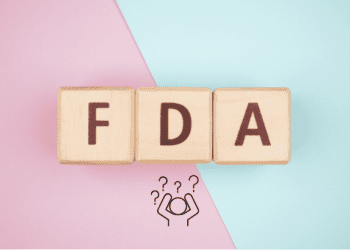Healthcare has always existed at the intersection of science, politics, and public trust. But in today’s digital era, the loudest voices often win—not the most measured ones. Nowhere is this more evident than in the rise of right-wing, populist-style communication within healthcare, amplified by social media and spearheaded by figures like Dr. Vinay Prasad.
A hematologist-oncologist by training and an academic by background, Dr. Prasad has morphed into a medical influencer with a style that mirrors the Trumpian ethos—blunt, combative, and unapologetically contrarian. He’s built a significant following by questioning mainstream medical narratives, particularly around COVID-19 policy, vaccine mandates, and institutional credibility.
But as his brand—and others like it—becomes more mainstream, the consequences for public health communication are starting to show.
The New Tone of Medical Discourse
Dr. Prasad is not alone. A growing number of physicians and healthcare commentators are adopting this style:
- Simplified, tweet-length critiques
- Accusatory language toward public health institutions
- Framing debates as “us vs. them” battles between independent thinkers and corrupt elites
This rhetoric resonates with audiences already skeptical of authority, especially in the wake of pandemic-era mandates and shifting guidelines. And much like populist political figures, these medical influencers position themselves as truth-tellers, fighting against an establishment that’s supposedly lost its way.
For many patients, particularly those active on social media, this framing shapes how they view healthcare—not as a complex, evolving system but as a battleground between heroes and villains.
The Appeal of Populist Medicine
In an era of declining trust in institutions, medical populism fills a vacuum. It offers clarity where public health messaging often falters. It provides community where traditional healthcare feels impersonal. And it gives people a sense of empowerment—regardless of whether the information is accurate or safe.
Dr. Prasad’s content often critiques scientific consensus with a veneer of intellectualism, making his arguments seem rigorous while appealing to emotional skepticism. He doesn’t yell like a talk show host, but the impact is similar: sowing doubt, questioning motives, and reframing nuance as evidence of failure.
The Consequences for Patients
What’s the harm? For one, it distorts the patient-provider relationship. When patients enter clinics armed with mistrust—already convinced their doctor is “pushing an agenda”—medical decisions become battles, not collaborations.
It also shifts the locus of medical authority from credentialed expertise to online charisma. More patients now get their health opinions from influencers than from physicians they’ve actually seen in person. That’s a dangerous precedent when complex medical decisions require context, nuance, and trust.
We’ve already seen how this plays out in vaccine hesitancy, resistance to public health guidelines, and the erosion of support for policies designed to protect vulnerable populations.
A Slippery Slope for Medical Professionals
Perhaps most concerning is the impact on other physicians. As the online medical space becomes more polarized, younger professionals may feel pressure to adopt similar tones to gain relevance. The algorithm rewards controversy, not caution. And once evidence-based critique becomes indistinguishable from ideological posturing, the entire field loses credibility.
It’s one thing to challenge medical orthodoxy; it’s another to monetize distrust.
Final Thoughts
Dr. Vinay Prasad represents a shift—not just in communication, but in what the public expects from physicians. As populist rhetoric becomes more entrenched in medicine, we risk turning healthcare into yet another arena of tribal politics.
In this environment, truth isn’t just debated—it’s branded, monetized, and weaponized.
To protect the integrity of healthcare, we must reckon with this communication revolution and ask ourselves: Who do we want shaping public perception of medicine—and how loud are we willing to let them be?
















I, for one, am sick to death of all these so-called “experts” spouting their half baked ideas; which aren’t backed up by any facts whatsoever!
Vaccines do NOT cause autism!
The “opioid epidemic” (no such thing) is NOT caused by prescription pain medicine!
So many people, including myself, have been irreparably harmed by these ridiculous guidelines that somehow were turned into laws. I’ve run out of friends, they’ve either committed suicide or died from total organ failure as a result of the CDCs 2016 opioid “guidelines!’
With the current administration, I fear that things are going to get worse.